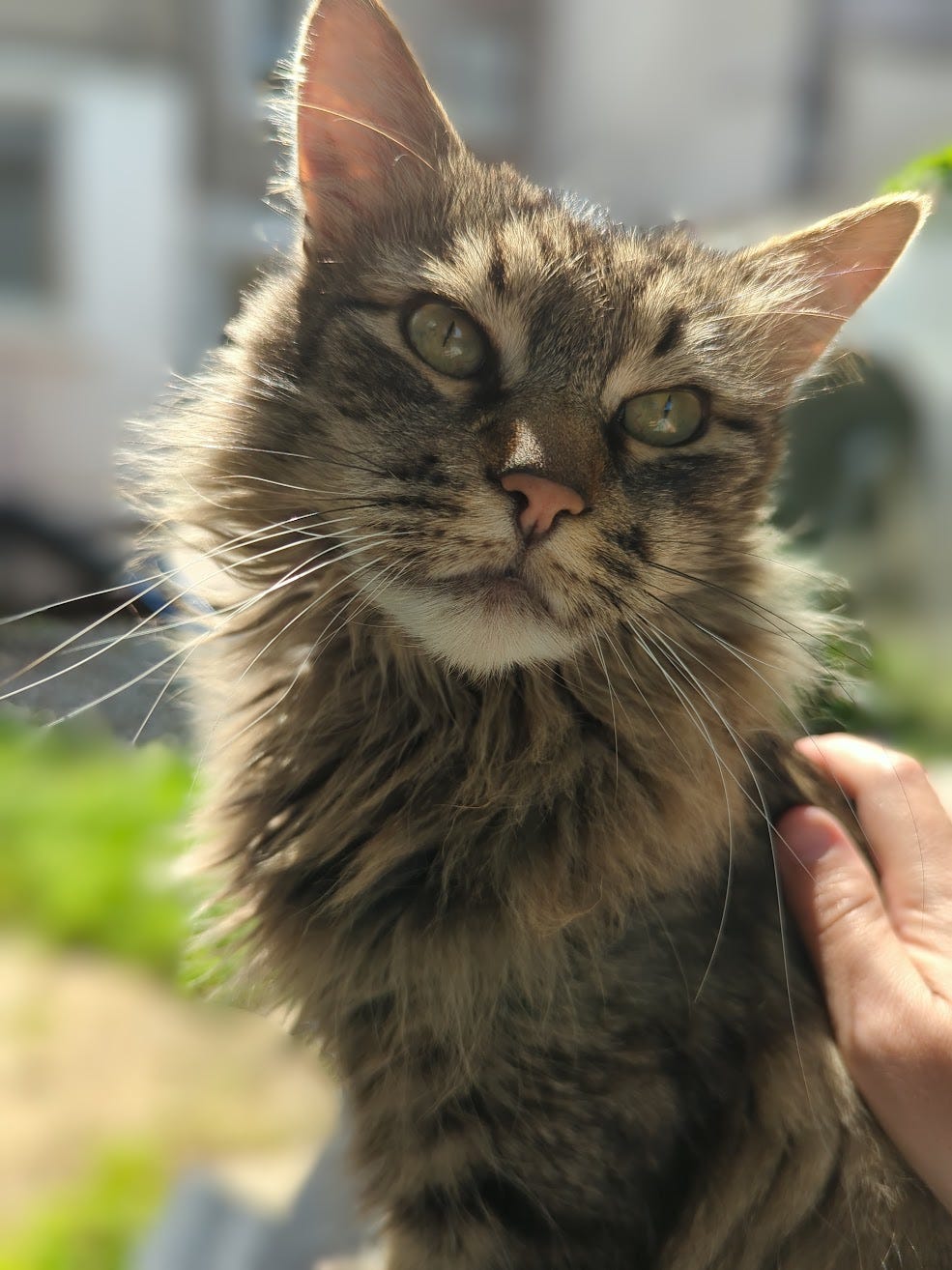Bits & Bobs for the Week of 15 May 2023
Below is a collection of the interesting things I've been reading over the last week or so. With an obligatory cat picture.
Long Reads (> 20 minutes)
Man's Search for Meaning by Dr. Viktor Frankl - Frankl's iconic work discussing his time in the concentration camps of Nazi Germany and how man can reach the very depths of suffering and still derive meaning in life. He also discusses logotherapy, which Frankl developed during and after his time in the camps. Logotherapy is based on the premise that the primary motivational force of a person is to find a meaning in life. Rather topical for me right now, and for all of us.
Joe Francis On Girls Gone Wild’s Stunning Rise And Fall | HuffPost Latest News: Scaachi Koul paints quite the picture in her investigation of Joe Francis and his infamous and explotative Girls Gone Wild franchise, which for the GenZ kids reading, was a way to get your porn delivered via mail-order DVDs (this was, of course in the late 90s and 2000s, when PornHub and the like didn't exist). The article doesn't pull any punches, and let's just say that even Dr. Frankl would probably have struggled to find any meaning out of Francis' pursuits.
Medium Reads (5-20 minutes)
Why Japanese Websites Look So Different | by Mirijam Missbichler | May, 2023 | Medium: Why do Japanese websites look so busy to Western audiences? The author has a few ideas: namely, constraints in font & web design (way more characters == way more work to create a new font), stagnation & limited technical literacy, and of course, cultural influence.
Science is a strong-link problem - by Adam Mastroianni: There are two kinds of problems in the world: strong-link problems and weak-link problems. Weak-link problems exist where quality depends on how good the worst stuff is. You fix problems by making the weakest links stronger, usually by enforcing strong controls (regulation, oversight, standards). This is why we have the FDA for food and drugs and the NTSB for transportation. By contrast, strong link problems depend on "how good the best stuff is, and the bad stuff barely matters." Music, art, sports and science... those are strong link problems. You solve strong link problems not by regulation or banning the worst, but by bubbling up the best. The problem, as Mastroianni argues, is we're all really bad at determining what's a strong v. weak link problem, and when we don't get it right, "we end up stunting science for a generation. Or we end up eating a lot of asparagus beetles."
Donald Knuth, Stephen Wolfram and ChatGPT: I absolutely adore this. For those who don't know, Donald Knuth (85) is the godfather of algorithms, inventor of TeK and like, a dozen other things, and wrote one of the seminal works about computer science, The Art of Computer Programming . In his correspondence with Stephen Wolfram (founder of Wolfram Research, inventor of Mathematica and Wolfram Alpha), he asks ChatGPT a series of questions, recording the responses, and providing context. My favorite question was # 6, where Knuth asked the following: "Where and when will the sun be directly overhead in Japan on July 4?" The question is innocuous, but Knuth's explanation makes it beautiful.
Short Reads (<5 minutes)
Seeking Wisdom — Lessons on Becoming an Outstanding Thinker | by Thomas Oppong | Personal Growth | Medium: Society values wisdom, knowledge and intelligence, but if you are ignorant and know the level of your ignorance, it can become an important stepping stone for acquiring relevant knowledge. My favorite quote: "In their pursuit of wisdom, they make time to think about their thinking and deconstruct ambiguities to lead a simple life."
On the internet, you can, in some sense, live forever: Garbage Day (which is a fab way to learn about all the cultural shit kids these days are doing) discussed the impermanence of data and Google, Facebook/Instagram and other services' recent push to start deleting inactive accounts, including those of the dearly departed: "When you convert a Facebook profile to a Memorial page, it erases that user’s chat history. I have screenshots of a few bits of what would end up being our last conversation, but that’s it. The rest is gone." As a Gen-X data protection person, I found his insights to be interesting (even if I don't agree).


For next week, check out https://www.experimental-history.com/p/reading-the-news-is-the-new-smoking